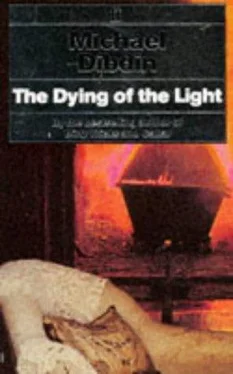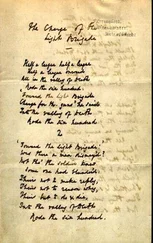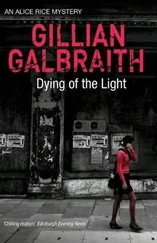Michael Dibdin - The Dying of the Light
Здесь есть возможность читать онлайн «Michael Dibdin - The Dying of the Light» весь текст электронной книги совершенно бесплатно (целиком полную версию без сокращений). В некоторых случаях можно слушать аудио, скачать через торрент в формате fb2 и присутствует краткое содержание. Жанр: Классический детектив, на английском языке. Описание произведения, (предисловие) а так же отзывы посетителей доступны на портале библиотеки ЛибКат.
- Название:The Dying of the Light
- Автор:
- Жанр:
- Год:неизвестен
- ISBN:нет данных
- Рейтинг книги:5 / 5. Голосов: 1
-
Избранное:Добавить в избранное
- Отзывы:
-
Ваша оценка:
- 100
- 1
- 2
- 3
- 4
- 5
The Dying of the Light: краткое содержание, описание и аннотация
Предлагаем к чтению аннотацию, описание, краткое содержание или предисловие (зависит от того, что написал сам автор книги «The Dying of the Light»). Если вы не нашли необходимую информацию о книге — напишите в комментариях, мы постараемся отыскать её.
The Dying of the Light — читать онлайн бесплатно полную книгу (весь текст) целиком
Ниже представлен текст книги, разбитый по страницам. Система сохранения места последней прочитанной страницы, позволяет с удобством читать онлайн бесплатно книгу «The Dying of the Light», без необходимости каждый раз заново искать на чём Вы остановились. Поставьте закладку, и сможете в любой момент перейти на страницу, на которой закончили чтение.
Интервал:
Закладка:
It was this which gave Rosemary every confidence that, whatever might happen to other letters, those between her and Dorothy would be allowed through. She proposed to offer Anderson an arrangement to their mutual advantage. As long as Dorothy continued to receive Rosemary’s letters endorsed with a scathing comment or two on the suggestions Dot had appended to her last (Surely you would have heard anyone going into Purvey’s room. Rose? Mrs Hargreaves presumably didn’t know that that mug contained the poisoned cocoa. As for what Channing says he heard, that sounds like a red herring.) then her lips would remain sealed about conditions at Eventide Lodge. But if there was any unexplained hiatus or delay, Dorothy would ask to speak to the chief consultant in confidence, and the next thing Anderson would know the police would be at the door.
Rosemary was well aware that in making such an agreement she was sacrificing the interests of the other residents-not to mention her own-to ensure Dorothy’s peace of mind. She would have found this impossible to justify to herself, let alone anyone else, she realised as she dressed hurriedly, but the question simply did not arise. There was nothing else she could do. In hospital Dorothy would have the best of medical care, but nothing and no one could replace the complex network of fact and fiction which Rosemary had woven into the intimate fabric of her friend’s consciousness. By manipulating those narrative strings like a loving puppeteer, she could influence events even at a distance, curtailing Dorothy’s isolation, limiting the inevitable pain and damage, protecting, distracting, consoling. She knew Dorothy better than anyone else in the world, she reflected with justifiable pride as she closed the door to her room and stepped out into the corridor. There was nothing her friend could do or think or feel or suffer that she could not foresee and counter.
The house was perfectly silent and deserted at that early hour. Rosemary stepped lightly along the strip of red linoleum, past doors giving on to bedrooms still in use or given over to dust and spiders. At one point there was a low window with a breathtaking view of the parkland at the front of the Lodge, trees, walls and hedges melting insubstantially into a dense layer of low mist above which the sun rose in a pale blue sky. Rosemary reluctantly turned aside to enter the dark plasterboard cubicle opposite. She hesitated a moment before George Channing’s door, then tapped lightly on the other side. There was no answer. She turned the handle quietly and stepped inside.
On this side of the house, cut off from the sun, the dim light made it seem several hours earlier, but the formless mass of the covers revealed that Dorothy was still in bed. Rosemary breathed a sigh of relief. At the back of her mind all along had been the fear that her friend might have spent a sleepless night pacing the floor in growing panic at the prospect facing her. In that case, she might well have been so distraught by now that any attempts to help would have been in vain. The last thing Rosemary wanted to do was to deprive her friend of a single moment of healing rest. All she planned was to be there when the sleeper awoke, ready to offer succour and support.
The room smelt stuffy and unclean. Rosemary went over to the window and raised the bottom sash to allow the clean morning air to flow in. A low growl raised the hairs on her arms and the nape of her neck. In the wilderness of the abandoned kitchen garden below, the tethered Doberman sat perched on its haunches, every muscle tensed, staring up at her with an expression of pure malevolence.
She stepped quickly back into the room, out of the beast’s view. Then, collecting herself with an effort, she forced herself to look out once more. The dog had its back to the window and its nose to the ground, inspecting the results of its previous activity. Rosemary now realised that this had involved nothing more sinister than ‘doing its business’, as she described it to herself.
With a discreet sniff of distaste, mingled with scorn for her weakness in allowing herself to be frightened by such a thing, she crossed to the chair she had occupied the night before and sat down to wait for Dorothy to stir. The dog’s attention must have been drawn by the noise of the window being opened, she thought, and like all animals it disliked being surprised at such a moment. As for the expression she had read in its eyes, Rosemary reminded herself sharply that malevolence, like its opposite, was an exclusively human attribute.
What revived her fear was not another sound but the silence gathering about her, an intrusive and imposing presence in the room. Then there was the smell as well, which she could no longer pretend was just the stuffiness to be expected in a room where someone has been sleeping. There was another component to it, an acrid whiff of something at once familiar and bizarre, intimate and faintly disgusting, which asserted itself above the ambient odours of decay and neglect.
Rosemary got to her feet, looking about her apprehensively. The first thing she saw was the paper, lying on the floor near the head of the bed. It was an ordinary sheet of writing paper, but when she stooped to pick it up, she was surprised to find her name written in block capitals. She turned the page over and quickly scanned the lines of wavery writing on the other side.
She straightened up slowly, seemingly mesmerised by the patch of wall just above the bed, where the grudging daylight made the wallpaper gleam dully. All around, the massed shadows crowded in at the margins of her vision. It was a very long time before she could bring herself to look directly at that darkness, but when she did it immediately receded, laying bare the figure lying on the rumpled covers, the head tilted sideways across the pillow, the eyes staring sightlessly up at the ceiling, the mouth gaping wide, the puddle of vomit collected on the sheets and in the hollow at the base of the throat.
PART TWO
CHAPTER 7
Not so bad after all in the end, thought Jarvis as he slammed the Fiesta’s door and crunched across the gravel towards the house. He hadn’t been best pleased when Tomkins had come down with food poisoning, leaving him to handle this chore on his own, but the drive out across the hills, not to mention the pint of bitter he’d found time for on the way, had done wonders to bring him round to the idea. As for Tomkins, serve him damn well right. Nothing like a dose of the bloody flux to cure the lad of his addiction to surf ‘n’ turf bars for the foreseeable future.
He climbed the short flight of steps leading to the front door and heaved on the bell-pull. Gentry did well for themselves in those days, he thought, eyeing the massive boot-scraper. Coming home of a morning, their hand-tooled leather clogged with the poor sods they’d ridden roughshod over. Still, even for the riff-raff it must have been some compensation to know what the rules were, and that they wouldn’t change in their lifetime.
Were we really that much better off, when you got right down to it? All depends what you mean by better, doesn’t it? What is truth? What’s it all about, Alfie? Where are the snows of yesteryear? How much is that doggy in the window? Pass, thought Jarvis, whose secret fantasy was to appear on Mastermind (‘Your chosen subject: Accrington Stanley’s line-up, results and week-by-week league position, 1956-1962’).
The door was opened by a lanky man in his mid-forties wearing a blue blazer and white flannel trousers. His long florid face rose to a mat of slicked hair which had receded to the centre of his skull. In his left hand he held a cut-glass tumbler filled with an amber liquid. He peered at Jarvis.
‘Not today, thank you,’ he said, starting to close the door. ‘Nor indeed any other day, for that matter.’
Читать дальшеИнтервал:
Закладка:
Похожие книги на «The Dying of the Light»
Представляем Вашему вниманию похожие книги на «The Dying of the Light» списком для выбора. Мы отобрали схожую по названию и смыслу литературу в надежде предоставить читателям больше вариантов отыскать новые, интересные, ещё непрочитанные произведения.
Обсуждение, отзывы о книге «The Dying of the Light» и просто собственные мнения читателей. Оставьте ваши комментарии, напишите, что Вы думаете о произведении, его смысле или главных героях. Укажите что конкретно понравилось, а что нет, и почему Вы так считаете.












